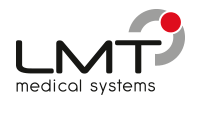Nuclear Medicine
Human Prostate Cancer Study Evaluates New Imaging Biomarker
The results of the first human prostate cancer study intended to evaluate a 2nd generation fluorine-18 labeled small-molecule PSMA inhibitor, have been published in the April 28, 2015, issue of the Journal of Molecular Imaging and Biology. More...26 May 2015
Survey Assesses Patients’ Understanding of Own Imaging Exams
A study by researchers at the NYU Langone Medical Center investigating patients’ knowledge of the nature of imaging exams they were about to undergo, has been published online in the April 10, 2015, issue of the Journal of the American College of Radiology. More...12 May 2015
Preventing Unnecessary Radiotherapy for Patients with Early-Stage Hodgkin’s Lymphoma
A new study suggested that patients with early-stage Hodgkin’s lymphoma disease, who underwent three cycles of chemotherapy with the drugs doxorubicin, bleomycin, vinblastine, and dacarbazine, and presented negative findings from Positron-Emission Tomography, did not need additional field radiotherapy. More...27 Apr 2015
New Innovative Imaging Technique Used for Diagnosing CTE in Athletes
Results of a study published in the April 6, 2015, online edition of the Proceedings of the National Academy of Sciences of the Unites States of America has shown that a Positron Emission Tomography scan can help researchers diagnose Chronic Traumatic Encephalopathy in contact sport athletes who are exposed to repetitive brain injuries. More...22 Apr 2015
Innovative Technique Promises New Inroads into the Diagnosis and Management of Pain
Magnetic Resonance Neurography is emerging as a promising technique for diagnosis and management of musculoskeletal pain. The annual cost of treating chronic pain and lost productivity is more than that of diabetes, heart disease, and cancer combined. More...19 Apr 2015
In Other News
Research Underway on Novel Lung Cancer Radiotherapy Treatment
PET/CT Dramatically More Effective at Diagnosing Heart Problems Than SPECT
Collaboration Agreement to Share Best Practices for Improved Cancer Treatment
Researchers Develop Computer Simulation to Help Improve Radiation Therapy for Cancer Patients
Combined PET/MR Imaging Technique Can Diagnose Cause of Unclear Foot Pathologies
Novel Coil Helps Surgeons Track Tumor Site
Cancer Treatment Center Upgrades Proton Therapy Treatment to Target Complex Tumors
Precancerous Breast Changes in Women with BRCA Gene Identified Using MR Spectroscopy
New Standards for Administration of Intravascular Contrast Agents for Adults
Construction of Australian Nuclear Medicine Production Plant Begins
PET/CT Improves Assessment of Oesophageal Malignancy
New Screening Method Can Significantly Improve Detection of Breast Cancers in Dense Breast Tissue
Neuroimaging Devised to Help Predict Future Behavior
PET/MR Imaging Shows First Evidence of Neuroinflammation in Chronic Pain Patients’ Brains
New Approach to Study the Development of Alzheimer's Disease
Agreement to Boost Innovation in Nuclear Medicine Radioactive Tracers
GE Healthcare and Karolinska University Partner to Optimize Cancer Treatment with PET Tracer Production Facility
Real-Time Radiation Monitor Designed to Decrease Radiation Exposure for Medical Workers
SPECT Imaging Scan to Find Source of Epileptic Seizures
PET Scans Help Identify Effective Tuberculosis Drugs
In Veterans with PTSD, PET/CT Imaging Reveals Pituitary Abnormalities
Arc Therapy Radiosurgery Faster Than Gamma Knife Treatments
World’s First Clinical MRI-Guided Radiation Therapy System Awarded CE Marking
The Nuclear Medicine channel of MedImaging brings the latest in research and clinical radiotherapy, proton therapy, PET-CT, SPECT, SQUID, radiopharmacology, scintillography, trends and safety concerns.











